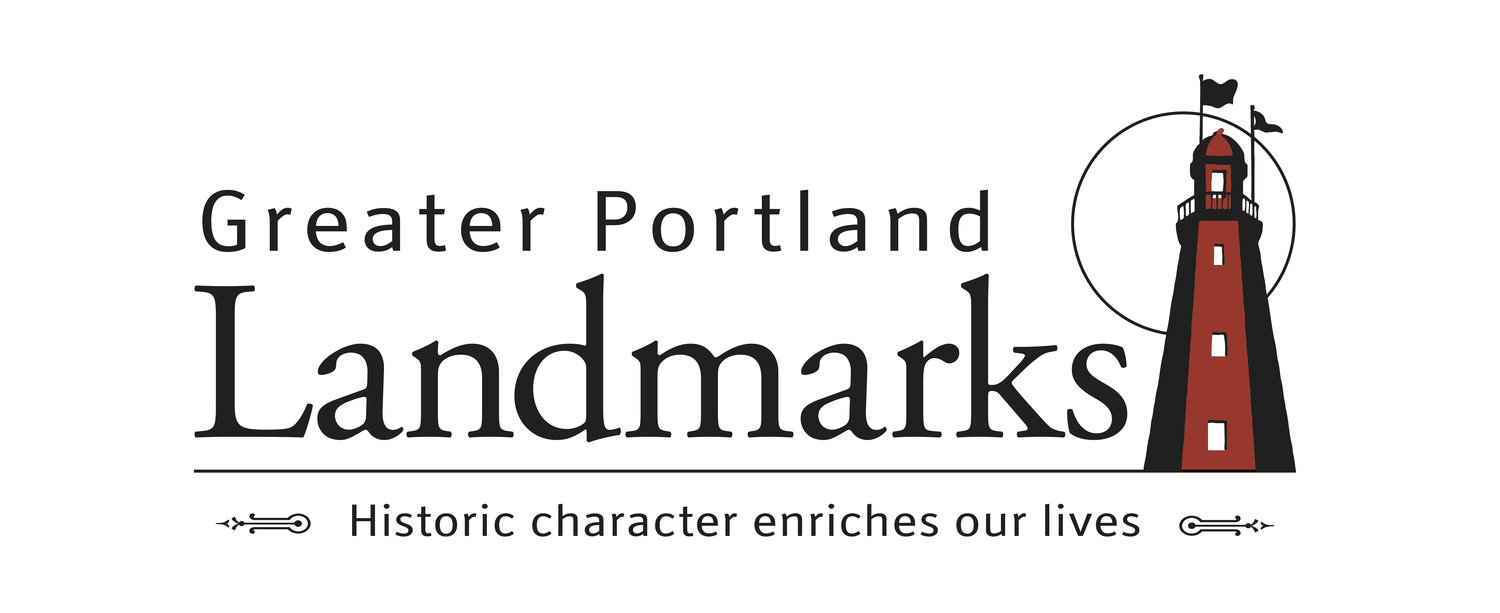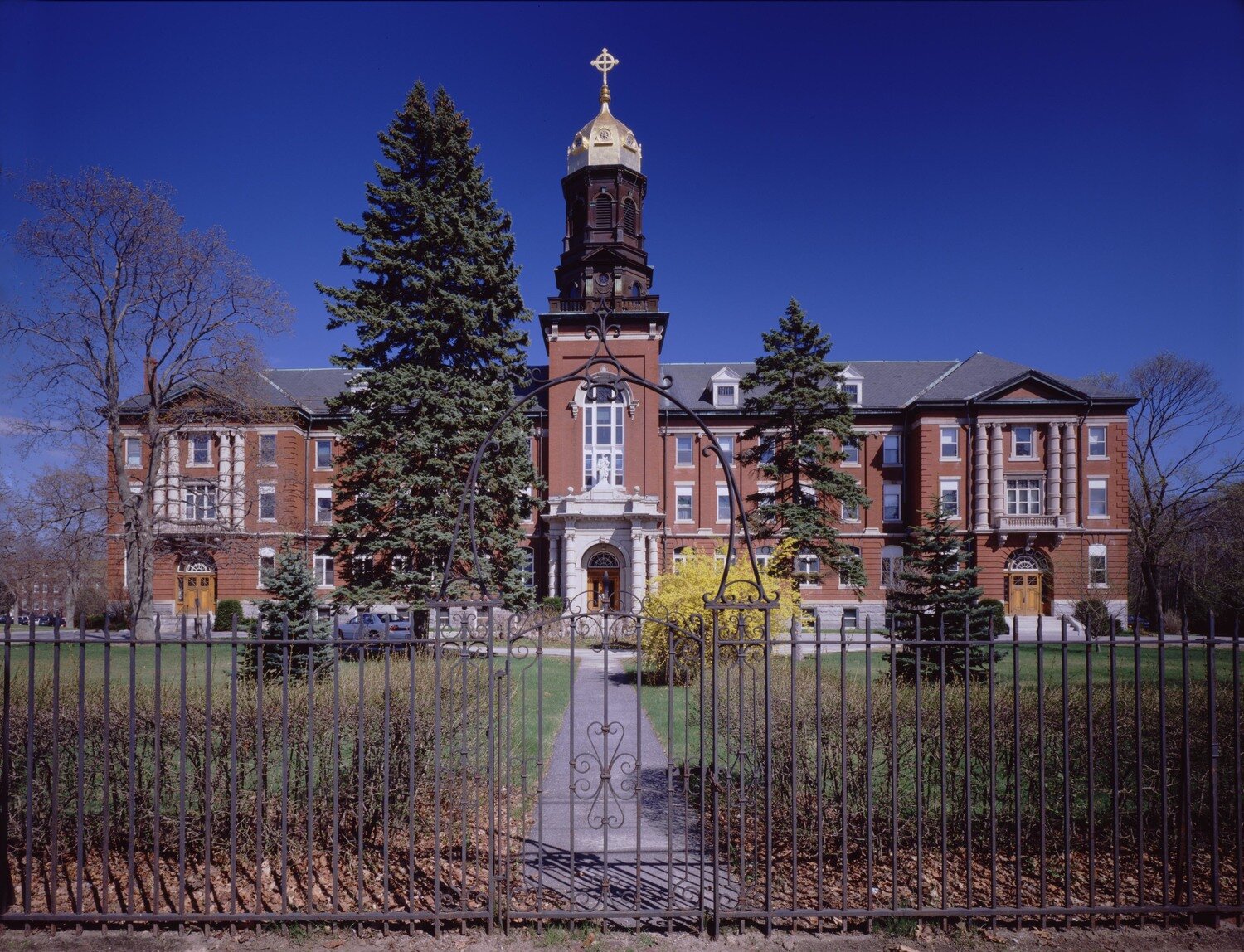by Julie Ann Larry, Director of Advocacy
I hope that everyone is well this holiday season. I took a bit of a break over the Thanksgiving holiday away from the internet and phone service. It was much needed time off but now I am back at work and ready to engage in all the exciting new projects and policies that are in the works for 2021!
While Greater Portland Landmarks works mostly at the local level, we also engage with state and federal legislation that will impact the historic preservation profession and our historic communities. While I was away there were several developments at the state and federal level.
In Maine this week was the release of the Governor’s Climate Action Plan. Greater Portland Landmarks and our preservation allies participated in the public workshops held by the Climate Council this spring and summer. Learn more about our advocacy on the Climate Action Plan and read our joint letter to the Council here. The plan’s goal is to ensure that Maine’s communities, industries, and people are resilient to the impacts of climate change and to reduce Maine’s Carbon Emissions 45% below 1990 levels by 2030. The plan has many important steps, but of special note are plans to help improve the efficiency of Maine’s existing housing stock.
One significant step will be to switch buildings to cleaner heating and cooling systems. About 60% of Maine households rely on heating oil as their primary home heating source — the highest percentage in the country. The plan calls for the installation of at least 100,000 new heat pumps in Maine by 2025. Did you know Greater Portland Landmarks’ headquarters, the Safford House, is heated by water-cooled, ducted heat pumps? Our system was installed nearly a decade ago, replacing an old oil-fired furnace.
If you are interested in the best practices you should follow when making your older home more energy efficient, check out Landmarks’ publication The Energy Efficient Old House. We also have other publications on sustainability and energy efficiency on our Resources webpage. Greater Portland Landmarks believes historic preservation and the green building movement are natural allies: the greenest building, as the saying goes, is the one that is already built! Greater Portland’s existing older buildings embody a heavy prior investment in resources and energy. Keeping them in use conserves that investment, and is recycling at its best!
As the Congress looks ahead to 2021, preservationists are advocating for legislation that will improve opportunities for affordable housing in historic buildings and address the vulnerability of our communities to the impacts of climate change.
The Motherhouse on Stevens Avenue in Portland is one of several projects in Maine that has been rehabilitated pairing Low-Income Housing Tax Credits and Historic Tax Credits. We are joining preservation advocates nationwide to make this paired funding process easier to increase affordable housing opportunities in our community.
At the federal level several issues remain under negotiation while the current Congress debates its final bills during the Lame-Duck session this month, or face uncertain futures as the new Biden administration takes shape. Last month Tom Cassidy, Vice President for Government Relations at the National Trust for Historic Preservation led a presentation to preservation advocates across the nation on the most pressing policy issues facing the preservation community in the months ahead. Potential areas of focus for the last days of the 116th Congress will likely be pandemic relief and extending government funding beyond next week’s December 11th deadline. Preservationist are presently advocating for improvements to the Historic Tax Credit (HTCs) that will aid in the pairing of Low-Income Housing Tax Credit (LIHTC) and the HTCs. The pairing of these two programs has benefited a number of affordable housing projects in Maine, including the rehabilitation of the Motherhouse on Stevens Avenue in Portland and the Southgate Mansion in Scarborough. In addition, preservationists are advocating for increased opportunities for small projects to take advantage of HTCs.
The National Trust’s presentation also looked forward to likely priorities of the 117th Congress: Climate Change, Affordable Housing, and Racial Equity. Landmarks, like many historic preservation non-profits across the nation, has expanded its focus to address challenges in all three areas in recent years. We plan to continue to broaden our advocacy and education programming to reflect our ongoing research in these areas. If you missed our Staying Above Water presentations in October, I hope you’ll take some time to check out the fantastic speakers that joined us to discuss the reasons Maine is susceptible to the impacts of climate change, what those impacts might be, and how we can improve our resilience.
With your support, through donations and your individual advocacy, we are successfully able to advocate for the reuse of historic buildings to the benefit of the environment and our neighbors. Your support also allows us to advocate for sound policies at the local, state and national level that protect and enhance our important cultural resources. Thank you for supporting Greater Portland Landmarks this year!




